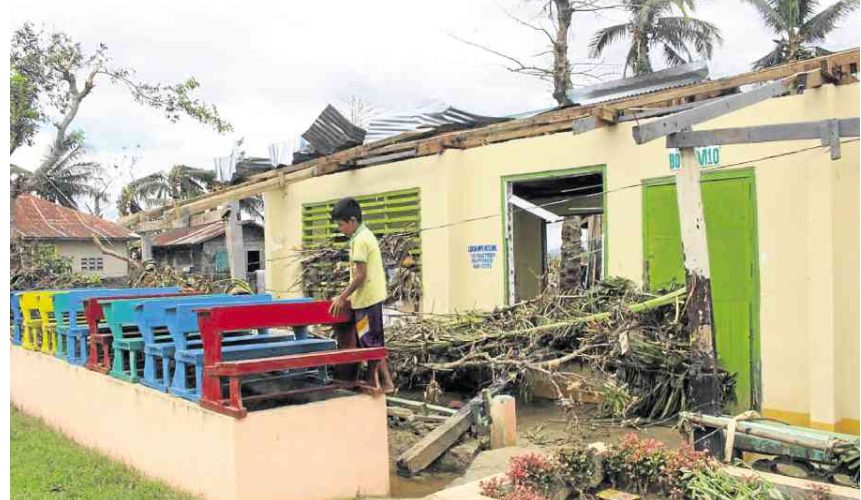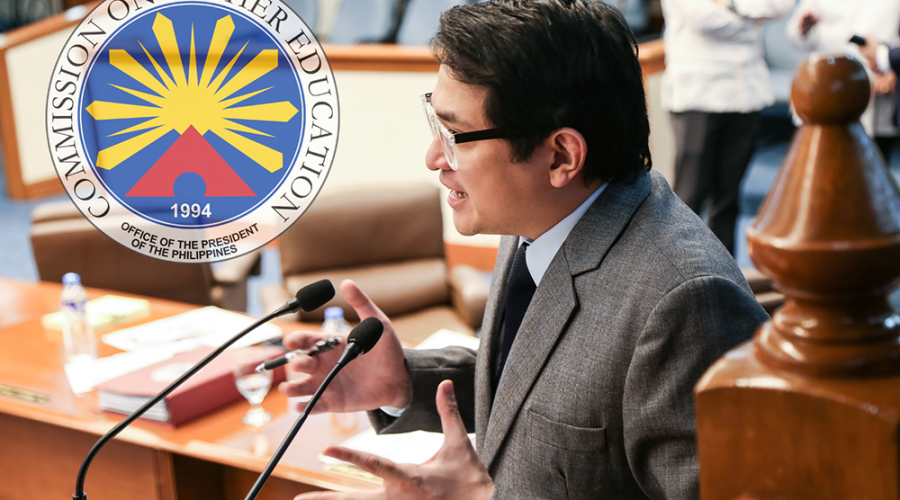Bam eyes quick repair, rehab of schools destroyed by typhoon
A senator has filed two resolutions seeking to determine the status of relief and rehabilitation of schools destroyed by Typhoon Nina in Regions IV-A, IV-B and V and post-disaster recovery in the Lawin-ravaged Cagayan province.
In Senate Resolution No. 266, Sen. Bam Aquino said 1,046 schools sustained infrastructure damage, 1,548 totally destroyed classrooms and 3,797 partially major damaged classrooms in Regions IV-A, IV-B and V.
“Thousands were affected due to the change in the schedule of classes caused by the devastation of the typhoon,” said Sen. Bam, adding that the disruption in classes will last for six months as estimated by the Department of Education (DepEd).
In addition, 63,232 units of school furniture, 386,689 learning resources and computers in 384 schools were destroyed by the typhoon, which wreaked havoc on Christmas Day.
“Preparedness and long-term solutions are needed to mitigate the effects of typhoons and natural hazards to students and learners,” said Sen. Bam, who also backed the DepEd’s call for the restoration of the P650-million Quick Response Fund (QRF).
According to Sen. Bam, some of the solutions include the early allotment of funds for cleanup and temporary learning services, buffer stock of furniture and computers and their prepositioning in disaster-prone areas.
Sen. Bam also submitted Senate Resolution No. 267 to ensure proper coordination between the National Disaster Risk Reduction and Management Council (NDRRMC), concerned local government units and private sector in the delivery of humanitarian aid to typhoon victims in Cagayan.
“This will lead to the recovery and the restoration of the livelihood, welfare and well-being of the affected families, particularly the children and the youth,” said Sen. Bam.
According to reports, typhoon Lawin destroyed P8.5 billion worth of agricultural products and infrastructure in Cagayan and left 15 people dead in the Cordillera Administrative Region (CAR) and Cagayan Valley.
Typhoon Lawin also displaced a total of 143,531 people or 28,710 families in Ilocos Region,Cagayan Valley, Central Luzon, CALABARZON and the Cordillera Administrative Region (CAR).



Recent Comments